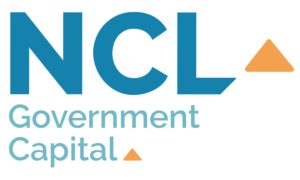It may be common practice for municipalities to utilize bonding to secure the necessary funds to procure large ticket items such as heavy equipment purchases, public works equipment, public safety fleets or even facility upgrades such as track and lighting for a high school. What if we told you there is a better way?
NCL Government Capital is an independently owned company providing leasing and financing solutions for government and educational agencies nationwide. For over 20 years, NCL has specialized in government lending and brings you competitively-bid financing with our exclusively awarded Sourcewell contract for financing. What this means for you is that when you implement a tax-exempt municipal lease from NCL, not only do you save your agency time, but you save money as well. With our Sourcewell awarded contract, you can rest assured that your complete procurement meets bid requirements when paired with Sourcewell cooperative purchasing or other contracted purchasing.
Through our 20+ years serving government agencies, we’ve ran into numerous communities electing to use bonding to secure the required funds for a project. With that, we also here “we’ve always done it this way” from procurement professionals. With the information below, we hope to shed some light on a more efficient method of securing funds for your community, a tax-exempt municipal lease!
COMPARISON: LEASING vs BOND ISSUE
Municipal Leasing
- Attractive interest rates
- Avoid voter referendum
- Useful and cost effective for transactions between $10,000 and $10,000,000
- No additional fees or reporting requirements
- Non-appropriation language means funding is on an annual basis and allows for termination in the event that future funds are not budgeted
- Leases are not considered legal debt
- Simple documentation speeds up procurement process and is less costly
Bonding
- Voter approval necessary: must consider cost
- High issuance costs: election, advertising, and considerable risk of referendum not passing (issuance cost approximately 2-3% of transaction size)
- Prepayment penalties and call provisions often apply
- Too costly for transactions less than $5,000,000 and questionable from $5,000,000 to $10,000,000
- All in cost continue for life of bond (interest, trustee fees, compliance reports, rating agency reviews and fees)
- No cancellation provision
- Bonds are legal debt and may adversely affect future bond issues due to covenant restraints
- Slow and tedious process which consumes significant staff time and energy with bond terms that may exceed useful life of asset
Working with NCL Government Capital was a learning process for all of us. In the past our equipment purchases were limited to the funds we had on hand. We discovered financing opportunities that changed our traditional ways of thinking, which will open more doors for us in the future. NCL will be one of the first calls we make when the opportunity arises again.
Jane Blade – Finance Director – City of Alexandria
